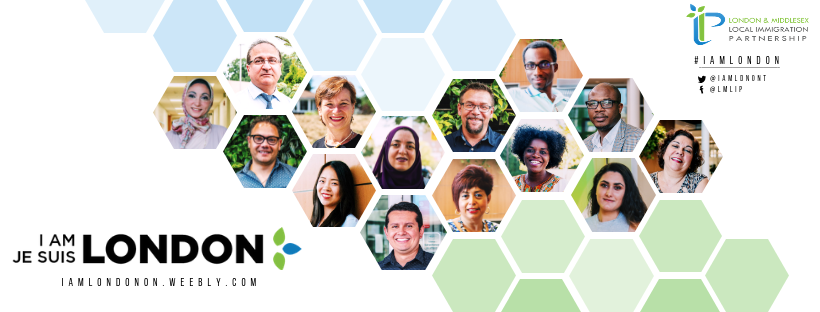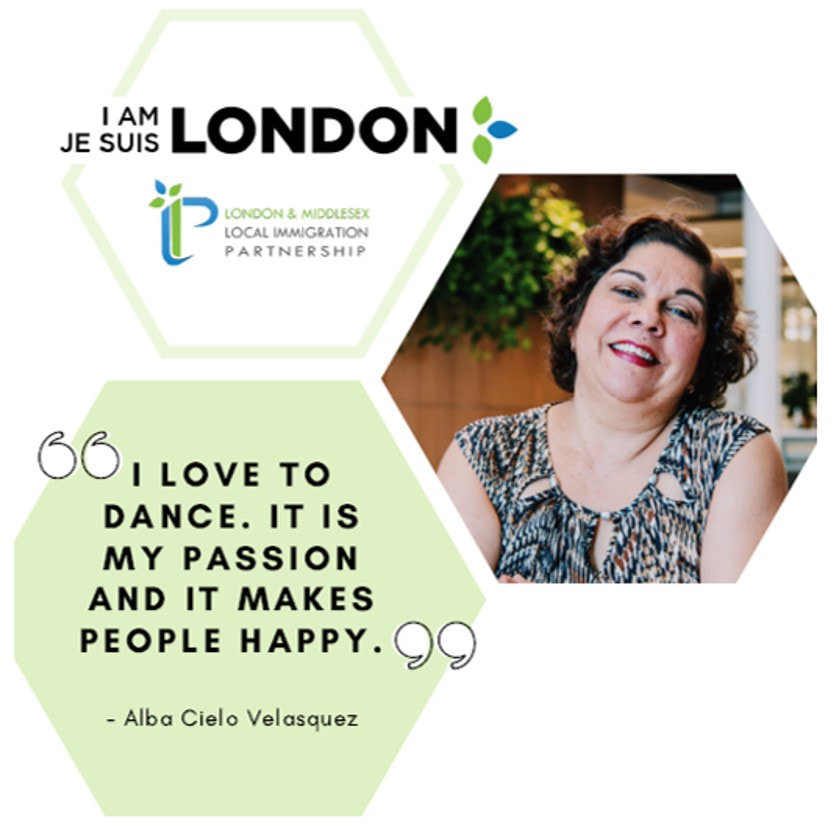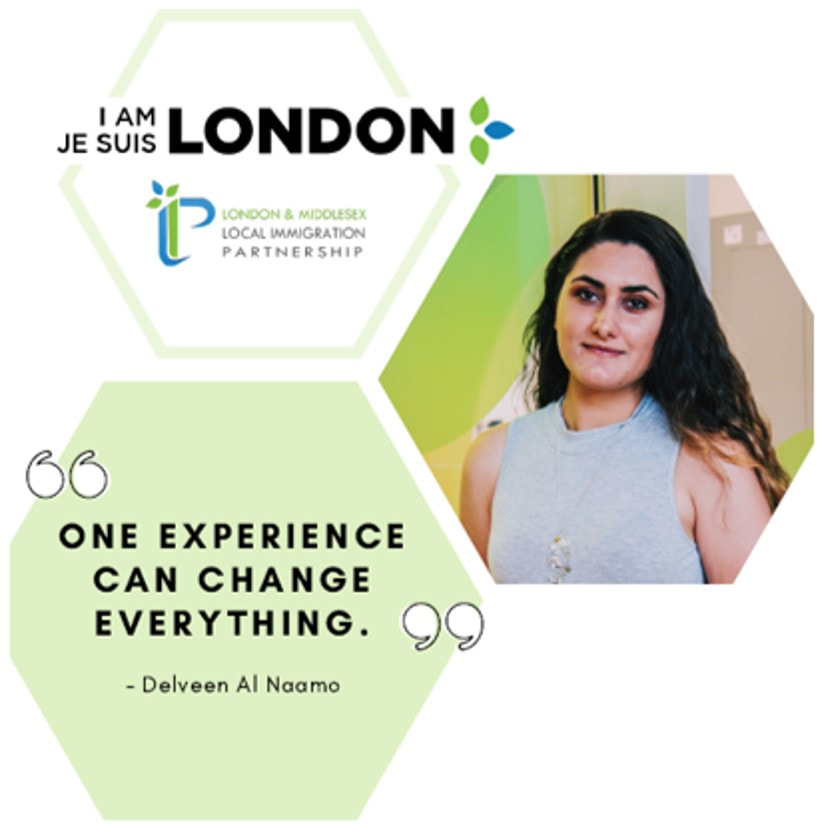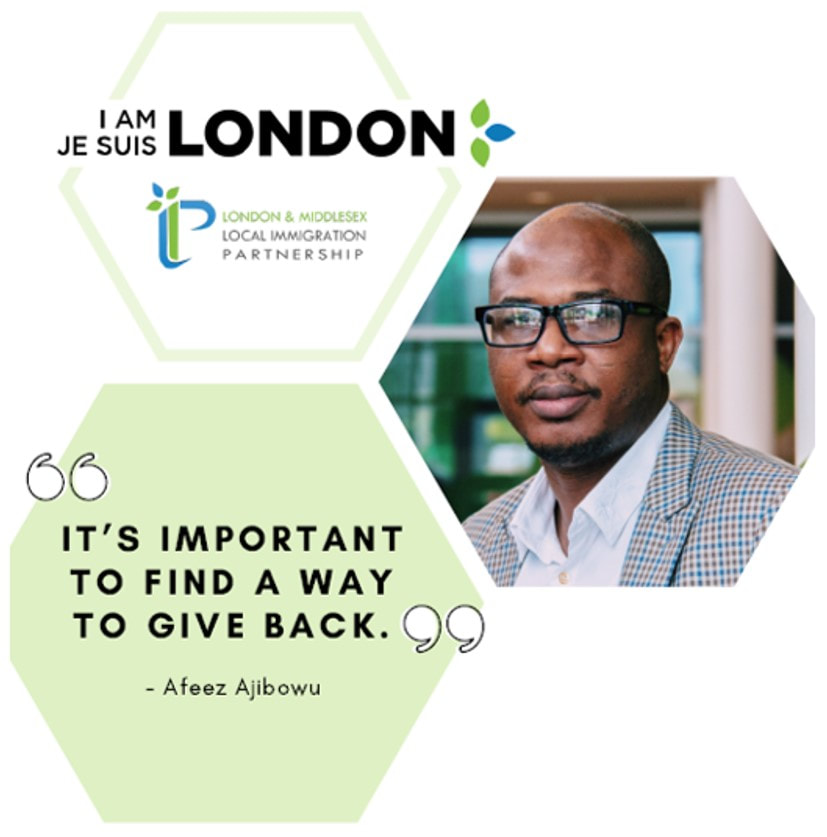|
If you met Alba Cielo Velasquez at her housekeeping day job, you might not guess she once spent weekends performing salsa, tango and merengue at her own seafood restaurant in Colombia. But you should see her teaching London children to dance. Since she arrived in Canada in 2004 with her family, the mom and grandmother has devoted her free time to teaching Colombian folklore dance to children in London.
Alba was here only a month, when she started a dance group with new friends she met during English as a Second Language classes. In the beginning, they were just a few couples who would gather at each other’s apartments to dance the nights away. Then the group grew and word spread through London’s Colombian community that a professional dance instructor was living in the city. Alba’s new friends asked if she had time to teach children. And Ritmo Y Café was born. Over the past 15 years, the dance company has performed at many special events and festivals – part of Alba’s mission to share Latin American culture with London and to instill confidence and pride in young people. “I want my students to learn about their background and where they came from and never forget about their roots. I want them to keep their culture alive, and for them to learn about the country where either they or their parents came from,” says Alba. These days, Alba teaches about 60 youth, charging enough to cover the basics, such as rent for school gyms and material for costumes Alba sews herself. She says her payment is knowing she has contributed to the rich multicultural fabric of London. “I love to dance. It is my passion and it makes people happy. I want to share that happiness with Londoners.”
6 Comments
She was still a teenager and brand new to Canada, when Delveen Al Naamo started volunteering to help other newcomers in London. It was November 2015, and Delveen was a student at Westminster High School, feeling lonely and out of place a month after she’d arrived in Canada. A Yazidi from Iraq, Delveen came to Canada as a refugee, along with her parents and five younger sisters, to escape persecution by Daesh militants. They were safe here, and for that Delveen was grateful, but she was still so lonely and depressed. When the school’s settlement worker asked her to help translate Arabic for some incoming students, she instantly agreed. “You don’t know anybody, you kind of feel like you don’t belong here. . . by helping people I thought maybe I’d get to know some people and make some friends. And it worked.”
Not only did she make friends. She gained strength in knowing she was providing support to people who really needed it. Delveen continued helping at the school and became known among staff and peers as the go-to student for Arabic translation needs. It felt good, she was making a difference. She started volunteering at South London Community Centre, then YMCA helping with a informal language practice program called Chit Chat with newcomer teens. Fast forward three years, and Delveen, now 22, is at Fanshawe College, studying pre-health on her path to becoming a nurse. She works part time and beyond that, she has continued helping newcomers settle in Canada as a devoted volunteer at London community centres. Her work has been noticed. In 2018, Delveen received the Engaged Refugee Award at London’s Life as a Refugee conference. Helping others helped her too, she says. If she could give one message to newcomers it would be to reach out and ask for help if they need it. “One experience can change everything,” she says. “It did for me.” He had a good life back in his home country of Nigeria, working as a sales executive with a multinational company.
His family of five was comfortable, by any standards. But Afeez Ajibowu wanted his daughters to have opportunities he says they might not have had in Nigeria. “It’s human nature. You want your kids to thrive after you’re gone. If they want to become a lawyer, you want them to have the opportunity to become a lawyer,” says Afeez, who now works in project management for an area school board. And so, striving to find balance between his personal career ambitions and the life he wanted for his family, Afeez applied to Canada as a skilled immigrant. The family arrived in 2013. It wasn’t easy for Afeez, who’s lack of “Canadian experience” disqualified him for many jobs, despite his Master’s of Science degree from the UK, brilliant career history and experience on the board of directors of various corporations. He went to London’s WIL employment and enrolled at Fanshawe College for the postgraduate in project management, which led to new opportunities and eventually to a position with an area school board. Something else he’s been doing since he arrived in London is volunteering. He sits on the board of the London Family Court Clinic, is a member of the London and Middlesex Local Immigration partnership and a Community Diversity and Inclusion Strategies Champion for the City of London. “It’s important to find a way to give back to Canada,” he says. “I give back by volunteering my time and skills to causes I believe in – economic development, protecting vulnerable people, inclusion and mental health.” To Afeez, community engagement is vital to making cities and countries stronger for generations to come. “People made sacrifices for us to have the beautiful country we have, the support systems we have here. They made life better for the people who came after them. That has to continue. We have to contribute so that people coming behind will say, this place is a lot better than it was.” |
Archives |




 RSS Feed
RSS Feed